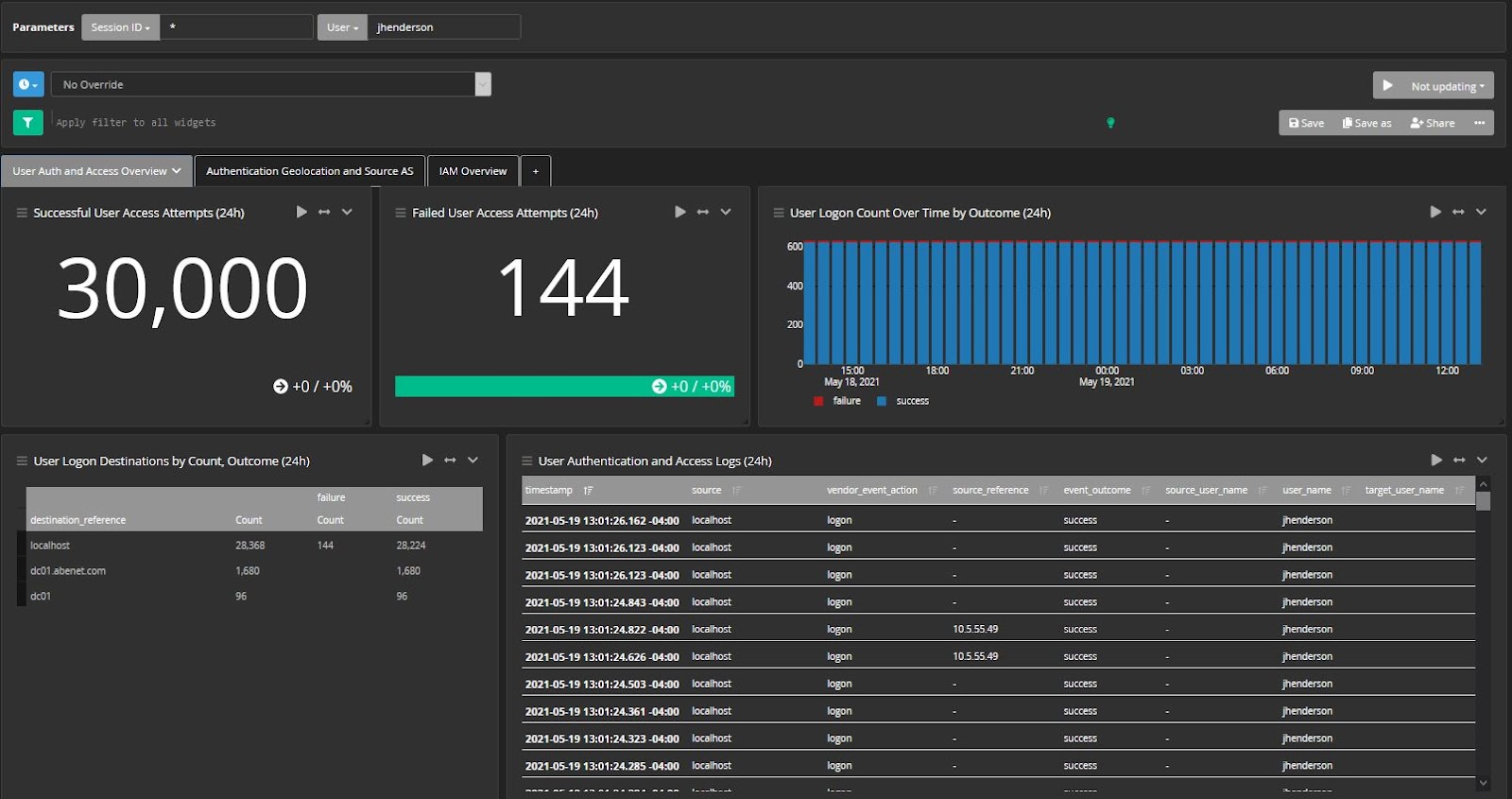Today, practically every meaningful action in an IT environment is logged. More than ever before, a proper log management solution is crucial for monitoring systems, networks, and software. Centralized log management is important because it provides the visibility needed so all IT functions can collaborate efficiently.
WHY ARE LOGGING AND MONITORING IMPORTANT?
Logging and monitoring give you visibility into what’s happening across your IT environment.
WHAT IS LOGGING?
Logging refers to both the log files and or the practice of logging events. Logging is the process of the technology sending the message about the action. Event log files are the output that details what happened.
WHAT IS MONITORING?
Monitoring is the process of collecting, aggregating, and analyzing what happened in the environment. You are often monitoring to diagnose issues like network traffic or application bugs.
WHY DO YOU NEED LOG MANAGEMENT?
IT environments output high volumes of logs every day. Consider that each of the following outputs event logs every single second:
- Devices: servers, routers, switches, workstations
- Networks: inbound and outbound traffic
- Users: logins and failed logins
- Applications: success or failure of operations
For example, every time an application successfully completes an operation, it sends an event log. It gets overwhelming if you multiply every successful operation by the number of applications and users you have.
In a complex IT environment, everything that generates an event log is interdependent. Looking at one event log type won’t tell you what you need to know. You need information from everywhere and the ability to correlate the events.
Log management gives you the visibility you need to reduce the noise generated by all this information.
WHAT ARE THE BENEFITS OF LOG MANAGEMENT?

Centralized log management is important because anyone with a technology-focused role needs to understand what’s happening in the environment. As you dig deeper into what it offers, you’ll find that alerting, search, and reporting capabilities help everyone do their jobs better.
Log management allows you to:
- Reduce the time and staff needed to monitor systems
- Reduce the time it takes to troubleshoot issues
- Increase communication across the IT department
- Enhance communication with non-technical stakeholders
- Document activities to meet compliance requirements
However, it’s also essential to understand why log management is necessary for different users within the IT department.
WHY IS LOG MANAGEMENT NECESSARY FOR DEVELOPERS?
Developers and DevOps teams often rely on log reports to detect and locate bugs when writing code. Both during development and after a software release, log management helps with:
- Debugging,
- monitoring for errors
- troubleshooting
Centralized log management solutions convert unstructured data and aggregate it with other structured data. This makes it easier to read. Then, developers can use the event data to squash bugs instead of wasting valuable resources and effort hunting them down.
WHAT ARE THE BENEFITS OF LOG MANAGEMENT FOR DEVELOPERS?
A developer’s success is measured by the application’s uptime. This means they need to know when the application has a problem and fix it quickly.
Centralized log management provides several benefits:
- Differentiating minor and critical flagged issues
- Converting logs into an easier to understand format
- Monitoring code in parts of the program that the developer doesn’t always have full access to
Developers use centralized log management to:
- Sort actual bugs and missing code from common false errors
- Submit status and performance reports to project managers or people who may be less tech-savvy
- Check how well the program functions

Why Is Log Management Necessary for Sysadmins?
System administrators oversee how computer systems and servers are operating. They make sure everything is configured optimally and working as intended.
Centralized event log management offers the real-time visibility needed to identify and analyze issues quickly. Collecting and reviewing logs:
- Shows how systems usually function
- Alerts to changes in functioning
- Helps trace the root cause of the change
These logs are the first line of defense against any irregularities for system administrators.
What are the benefits of log management for Sysadmins?
Centralized log management gives Sysadmins a way to create a precise, methodological approach to their work.
Centralized log management provides several benefits for Sysadmins:
- Collect data
- Store it in a proper format for as long as needed, and help analyze issues and errors
- Generate their own rules and templates for generating alerts, like changed registry values, failed login attempts, and other suspicious activity
- Extensive search options
Sysadmins use centralized log management to:
- Analyze issues and errors
- Look for patterns correlating with similar events
- Quickly sort, find, and compare past log activity with current activity

WHY IS LOG MANAGEMENT NECESSARY FOR IT SECURITY?
IT security needs to be adaptive and proactive. Attacks that compromise data protection evolve daily. Aso, they are becoming harder to detect, investigate, and remediate.
Centralized log management can give real-time visibility into abnormal activity within your environment. You can analyze log events as a security breach attempts to find possible holes and exploits.
WHAT ARE THE BENEFITS OF LOG MANAGEMENT FOR IT SECURITY?
Companies of all sizes and across all industries have security concerns. Log management is another layer of protection against unwanted incursions and data theft.
Centralized log management provides several benefits for IT security:
- Continuous monitoring of systems
- Event aggregation, correlation, and analysis
- Ability to create, customize, and update personal filters according to the needs of your unique software, hardware, and network configurations
IT security uses log management to:
- Act as soon as they notice abnormal activity or security incident to reduce key metrics like Mean Time to Detect (MTTD), Mean Time to Investigate (MTTI), and Mean Time to Respond (MTTD)
- Create high-fidelity alerts that reduce alert fatigue and time spent responding to false-positives
- Detect known vulnerabilities more effectively and remediate security weaknesses faster

WHAT IS A LOG MANAGEMENT SOLUTION?
A log management solution, or centralized log management tool, is a technology that manages all event logs across the environment. This includes logs generated by on-premises, cloud, and hybrid environments.
A centralized log management solution includes the following capabilities:
- Collection
- Aggregation
- Parsing
- Normalization
- Aggregation
- Correlation
- Analysis
It gives you a single location for managing all your logs so you can create a systematic approach to operations and security.
SO WHY IS LOG MANAGEMENT IMPORTANT?
Without it, many facets of IT would remain obfuscated. You would know that something is wrong. However, you would be unable to figure out exactly what. At the very least, it would take you a long time to search for the problem.
You can always spend this wasted time on more productive and strategic activities. Luckily, centralized log management tools, like Graylog, make managing logs easier and more efficient.
Centralized log management is a proactive solution for any business that helps reduce costs and IT staff time. Graylog helps you stay ahead of potential problems across DevOps, Operations, and IT security.
Our solution enables high-fidelity alerts so you can prioritize your issue and security response activities. With our lightning-fast search capabilities, you complete your investigations faster and free up time to spend on other tasks.



